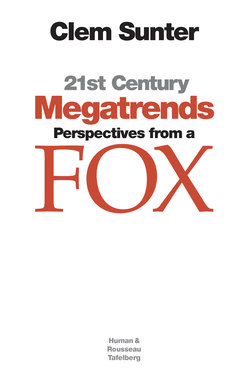Читать книгу 21st Century Megatrends: Perspectives from a Fox - Clem Sunter - Страница 9
На сайте Литреса книга снята с продажи.
Active learning
ОглавлениеIn life, only a handful of people influence your powers of reasoning significantly. In my case, two people stand out. The philosopher, Anthony Quinton and the legendary scenario planner, Pierre Wack. They both taught me that the only way to advance your knowledge is to develop a way of looking at the external world which is ready for the unexpected. We all have filters in our perception caused by our background, emotional make-up, likes and dislikes and the trick is to compensate for them in order to arrive at a picture as close to the truth as possible.
According to one definition, a lecture is an efficient way of transferring notes from the lecturer’s to the student’s notebook without passing through the head of either body. Obviously, this definition was in the mind of the inventors of ‘active learning’ where much more attention is given to the learner being actively involved in the process of his own learning.
I was introduced to the concept at a fascinating pair of workshops held in Johannesburg and Cape Town to which I was asked to make a contribution. They were organised by the LR Management Group (LRMG), but had heavy input from the Harvard Business School (HBS) with which LRMG has close links. JF Goldstyn, Director of Harvard Business Publishing, made the observation that active learning could overthrow the style of teaching that has ruled universities for over 600 years.
Indeed, there are now senior executive development programmes at HBS which are only 10% formal learning and 90% informal learning. The majority of the course is staged around learning events involving a degree of online learning, peer learning, social media and improving the ability of spontaneous learning on the job. In other words, you do it yourself and through interaction in teams. You are your own leader.
I can relate to this because at university I remember bunking many of the formal lectures and preferring to go to the library to read the books and articles I selected to read. In addition, I had a one-on-one tutorial once a week with one of England’s greatest philosophers at the time, a man called Anthony Quinton. He preferred to have a conversation about topics which at times were far removed from the formal syllabus. However, it taught me so much more about putting whatever cognitive skills I possessed to maximum use than having him pass information to me on how my essays could be improved. I reckon the weekly debate with him did more than anything else to set me up for the career I subsequently pursued and not to accept anything at face value. It taught me to argue logically and crucially to give up when the other side offered a better argument.
Moreover, Quinton opened my eyes to experimentation with seemingly ridiculous ideas that might have a grain of truth on further analysis. ‘Never let the fear of being the laughing stock deter you from breaking new ground’, he used to say. Sometimes, when we reached deadlock on a philosophical point, he would throw his hands in the air and say that truth had many different faces, and compromise was the answer. One of his favourite quotes was: ‘Occasionally, the Catholic Church has to go to the Moulin Rouge.’
So, it is exciting to see institutions like Harvard have come to the same view about the advantages of active learning that I, probably using a different phrase, came to all those years ago. Furthermore, in this day and age of smart gadgets and the internet, a learner is much more empowered to seek knowledge and truth for himself and herself – from infancy onwards.
I wonder what the course content of universities and business schools will be like in 600 years time. Maybe students will teach and professors will learn!
